- Future Students
- Current Students
- Faculty
- Staff
- Alumni
- Others
What Does it Take to Become a Global Citizen?
A group of University of Guelph-Humber students went all the way to Japan to find out
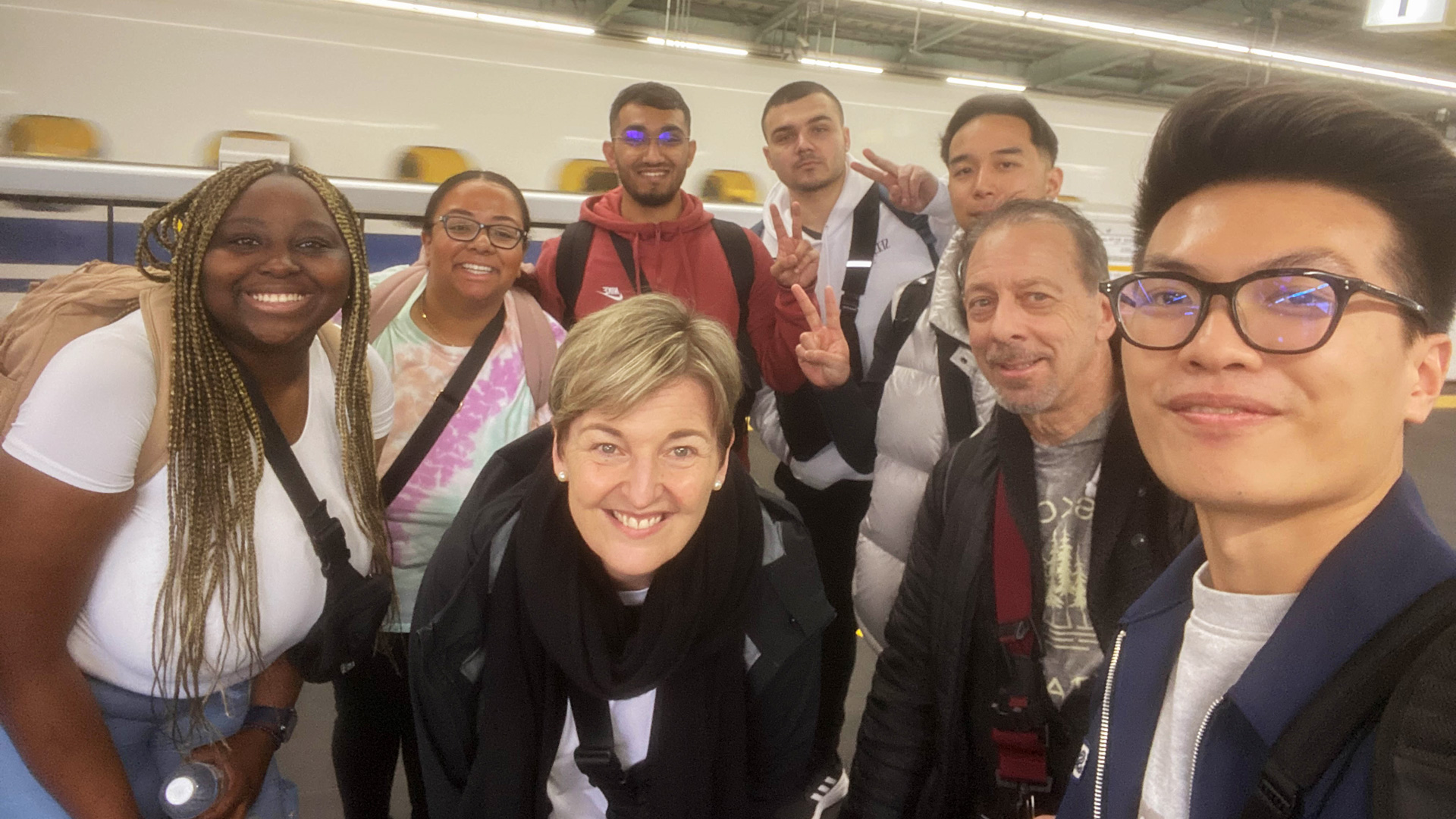
Planes, trains, and…more trains. This was how a group of University of Guelph-Humber students, Community Social Services (CSS) Program Head, Dr. Paul Sherman, and Vice-Provost, Dr. Melanie Spence-Ariemma traveled on their recent tour of Japan - but it was the gracious Japanese culture that truly moved them.
“I loved seeing how Japanese people live their life,” said UofGH fourth-year Kinesiology student, Ihtisham Ahmed. “Everyone handed me things with both hands while slightly bowing out of respect. Spending a week in Japan made me habituated into doing that to the point [that] I started doing that when I came [back] to Canada.”
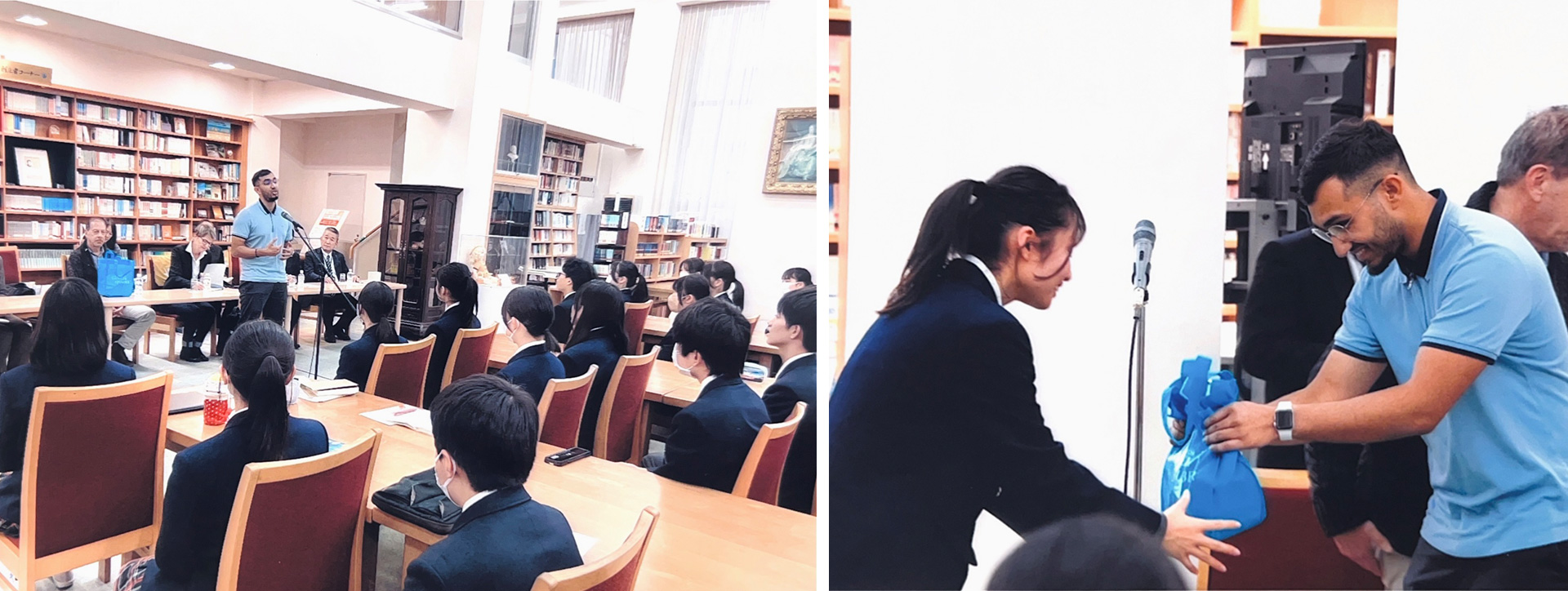
Ahmed was one of six UofGH students on the trip, all recognized as research assistants (RAs) for the University of Guelph-Humber Soka Education Research Centre on Global Citizenship (SERC-GC) led by Dr. Sherman, SERC-GC Director. The RAs were given the opportunity to visit Japan as part of a collaboration with Kansai Soka High School. Since July of 2023, the GH students have been working on collaborative projects with a group of Kansai Soka students via Zoom to develop an understanding of important global issues related to nuclear disarmament, such as environmental sustainability, human rights, and generational challenges.
Dr. Sherman explained that this experience has allowed students to improve their collaboration, research, and presentation skills while gaining direct exposure to and understanding of the Japanese culture.
“After developing friendships for seven months online, the joy of interacting in person was a real delight to witness,” said Dr. Sherman, who was instrumental in launching the research centre in November of 2017 with funding from the Makiguchi Foundation for Education in Japan. “The Kansai Soka students and staff were so welcoming and made our students feel very special.”
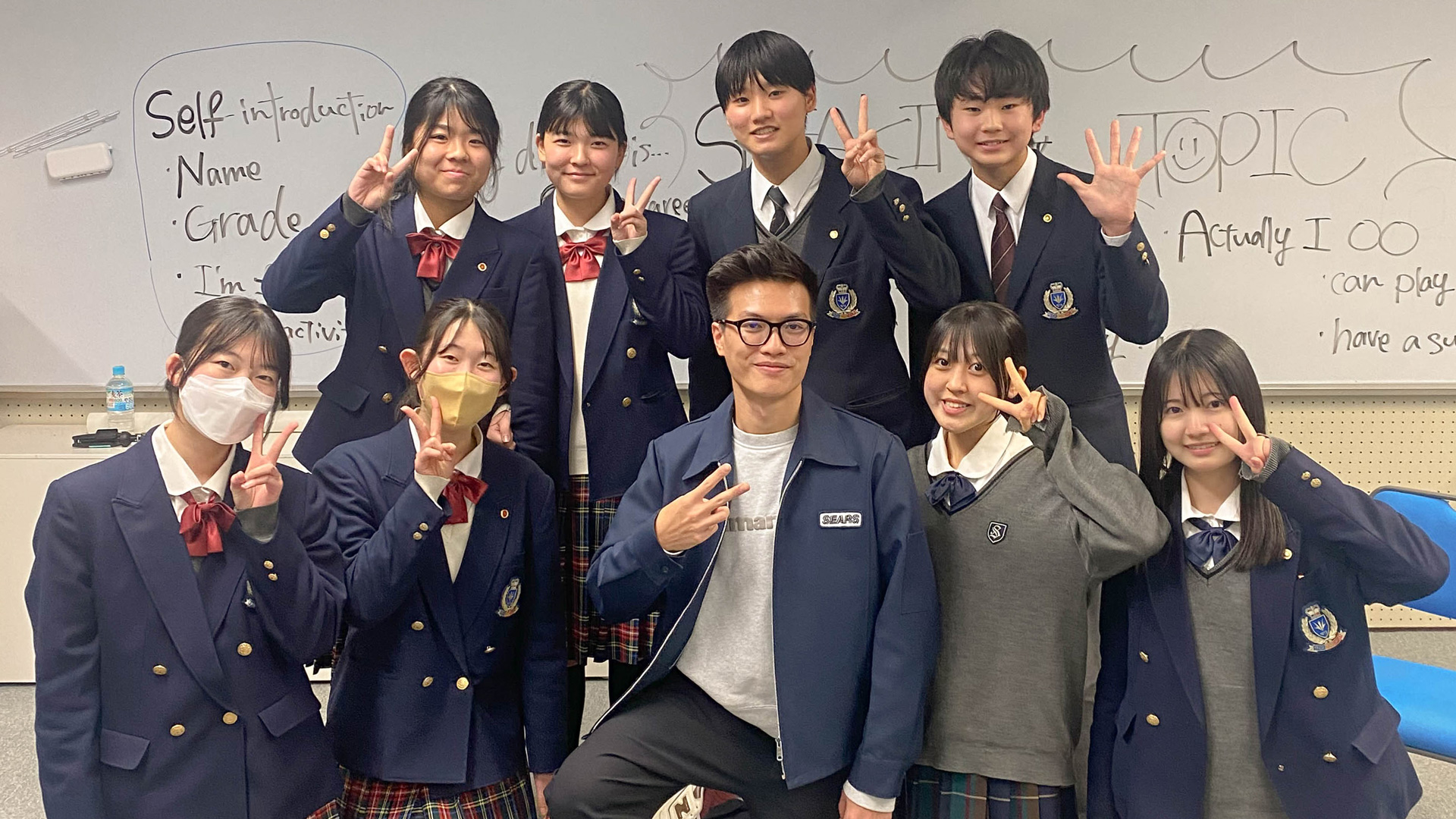
Offering a unique opportunity for undergraduate research, SERC-GC is deeply rooted in Soka education, an educational theory put forward in 1930 by Japanese educators, Tsunesaburo Makiguchi and Josei Toda.
“The mission of SERC-GC is to conduct research on Soka education’s application for educational and community settings, with an emphasis on education for global citizenship, and to contribute to local and international discourse on [this] research and its practical application,” explained Dr. Sherman. “This cross-cultural experience offered by SERC-GC provides an excellent opportunity for the RAs to more deeply understand and demonstrate the characteristics of a global citizen.”
Daisaku Ikeda (1928-2023), founder of the Soka education school system in Japan and Honorary Degree recipient from the University of Guelph, defined a global citizen as someone who has:
The wisdom to perceive the interconnectedness of all life and living.
The courage not to fear or deny difference; but to respect and understand people of different cultures and grow from encounters with them.
The compassion to maintain an imaginative empathy that reaches beyond one's immediate surroundings and extends to those suffering in distant places.
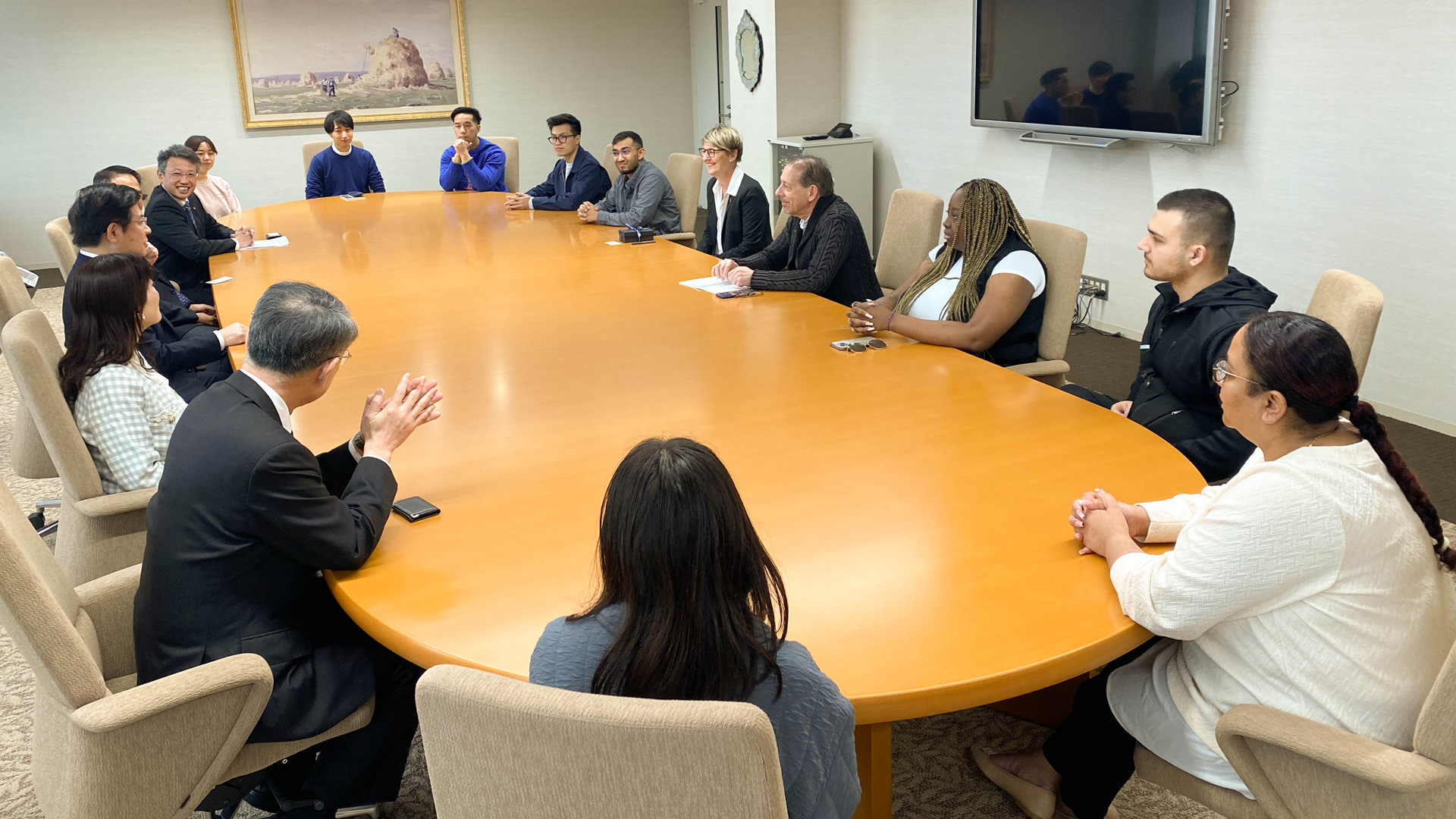
Ahmed, who was born in the Middle East, living for a time in Pakistan before moving to Canada admits that despite living in diverse countries, he had lost sight of what it meant to be a global citizen before embarking on this journey with SERC-GC.
“This trip really opened my eyes to the fact that as a Canadian, my view on certain topics is very limited,” Ahmed said. “[While in Japan, we gained a different perspective] about the bombings in Hiroshima and Nagasaki. In Canada, we learned from the perspective of politics and military strategy, but in Japan, we learned about the lived experience of victims. As a global citizen, I was able to [see] both views when advocating for peace.”
Gaining a new perspective, too, was University of Guelph-Humber Vice-Provost, Dr. Melanie Spence-Ariemma, who joined the group to sign a new memorandum of student exchange with Soka University President, Masashi Suzuki.
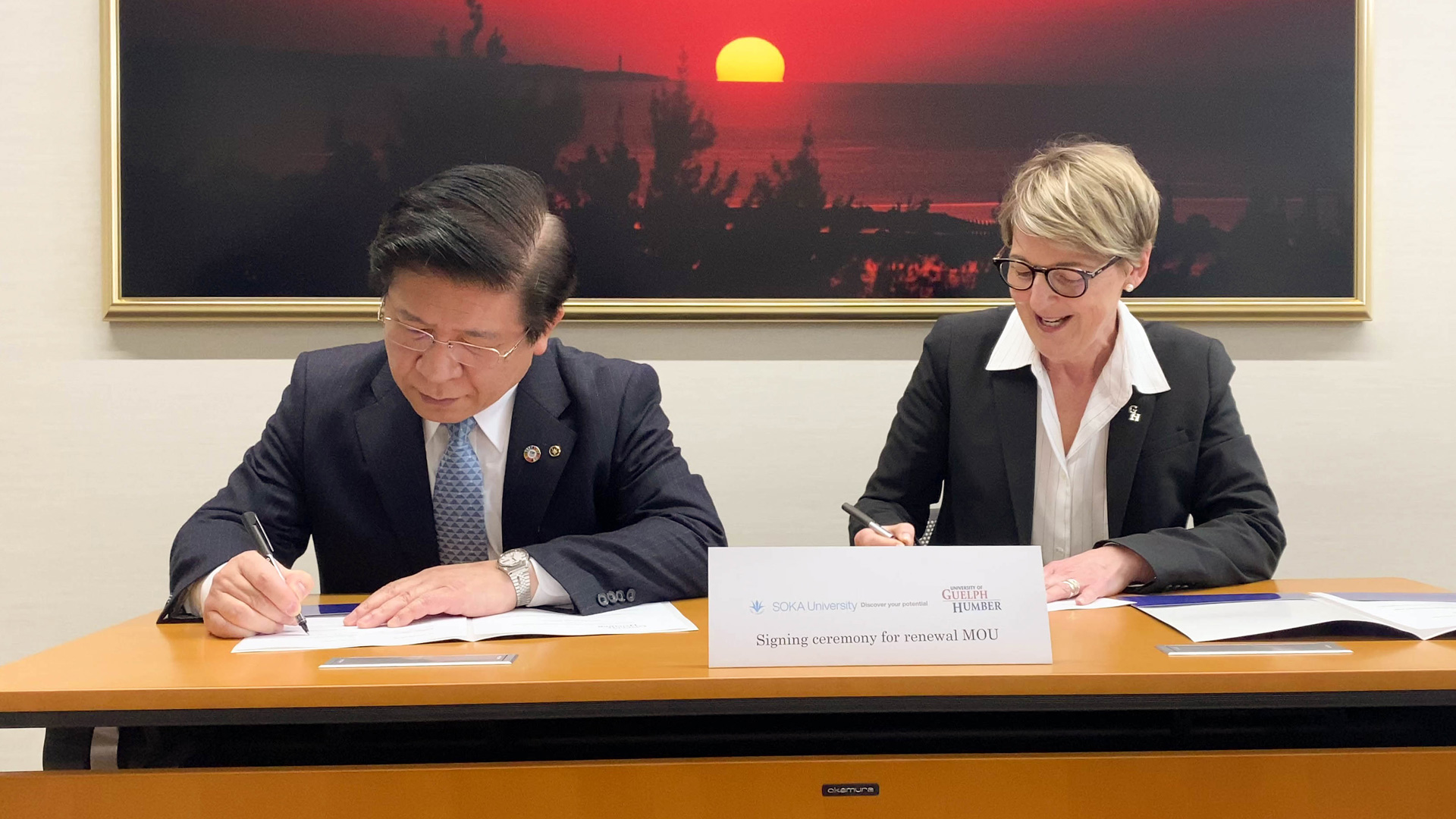
“As UofGH’s relationship with Soka University, Kansai Soka High School, and the Makiguchi Foundation for Education is the longest continuous and strongest multi-faceted international partnership we have, it was important that Melanie meet our partners to further strengthen the relationship,” said Dr. Sherman. “As the trip was akin to a mini ‘Study Abroad’, it also afforded her the opportunity to experience the transformative nature of our study tours for students, and to interact with them at the ground level.”
“An international exchange can be one of the most profound moments of transformational change for any student,” said Dr. Spence-Ariemma. “This continued partnership enables students to grow academically and personally by expanding their knowledge, enriching their understanding of cultures and people while studying in a supportive university environment.”
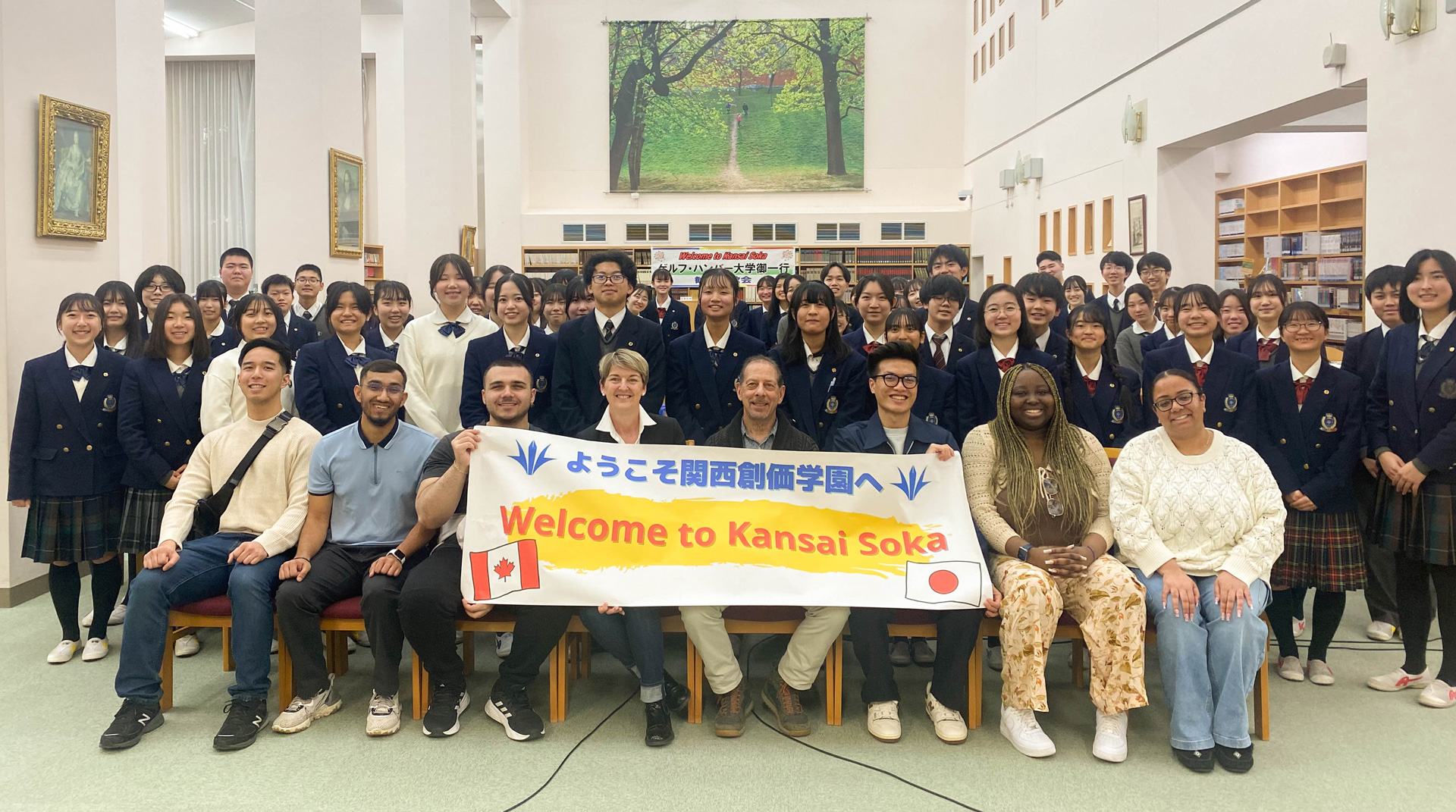
Massimo Pascuzzi, also a 4th-year Kinesiology student and one of the six RAs on the trip was especially taken by the vision behind Soka education that he saw come to life in Japanese daily practice.
“The immersive cultural exchange and encounters with the Japanese way of life expanded my perspective beyond borders, fostering a deep appreciation for diversity and interconnectedness,” Pascuzzi said. “[My] newfound global awareness and commitment to Soka values have become guiding pillars, influencing not just my personal growth but also my role as a responsible global citizen.”
Dr. Spence-Ariemma believes that the interconnectedness of a value-creating education, global citizenship, and research is core to cultivating the values of compassion and empathy for others as well as building supportive relationships between countries and cultures through learning.
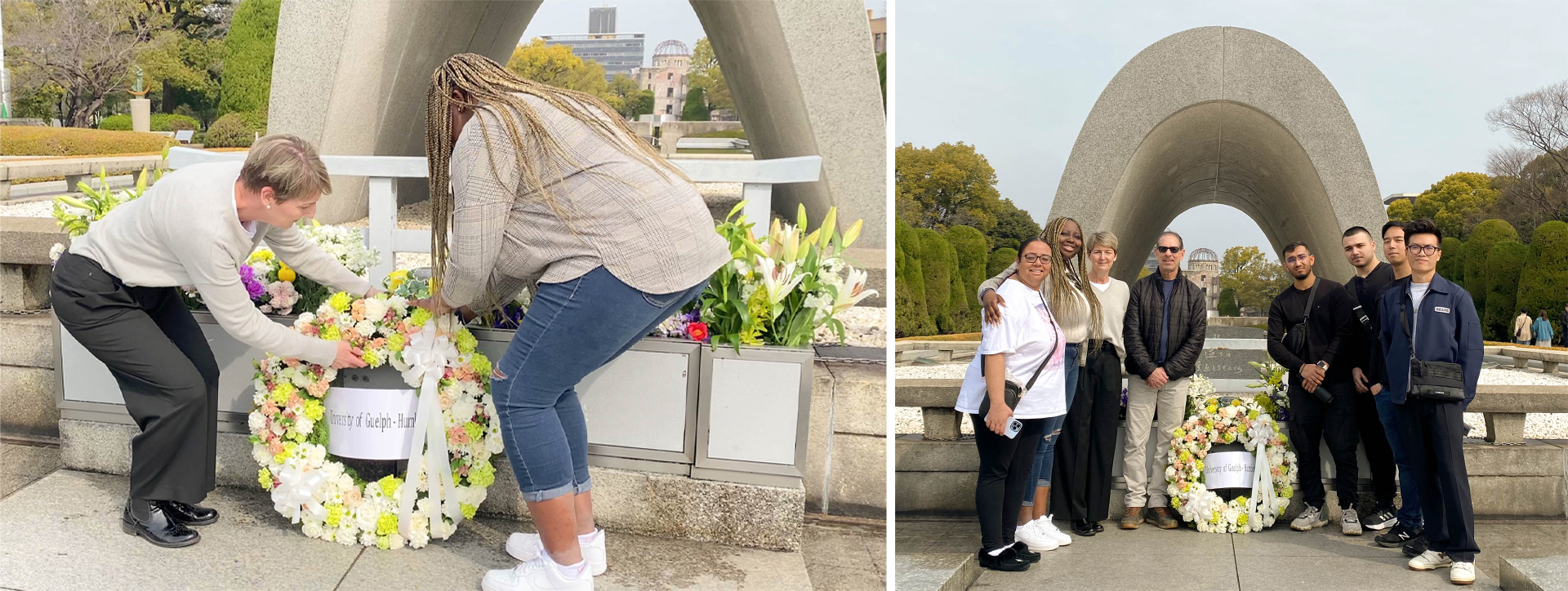
“Specifically, through research, we can begin to learn about the ways peoples and countries are interdependent and connected, how global issues may be viewed differently, and promote and advocate for shared approaches in finding solutions to global issues,” Dr. Spence-Ariemma said. “SERC-GC not only seeks to develop global citizens through education and research, but the partnership with Kansai Soka High School further fosters cross cultural collaborations and connections with the expressed intent of learning about varied perspectives on global issues.”
Reflecting on this experience in Japan and Daisaku Ikeda’s definition of global citizenship, Ahmed said he might have called himself a global citizen before he joined SERC-GC but knows now that wouldn’t have been true.
“[After traveling to Japan], I would say that I am constantly trying and working on myself to be a [true] global citizen. I think everyone should strive to be a global citizen if they want to make a meaningful impact on the world.”
SERC-GC will be presenting its collaborative project at the upcoming University of Guelph’s Teaching and Learning Innovations conference. The presentation by Dr. Sherman and RAs Ihtisham Ahmed, Massimo Pascuzzi, and Tenisha Noel is entitled, Collaborative Online International Learning (COIL): A Cross-cultural Project.
Photo credit: Hoang (Harry) Nguyen, a fourth-year international student from Vietnam who is studying in the Business program at UofGH.

